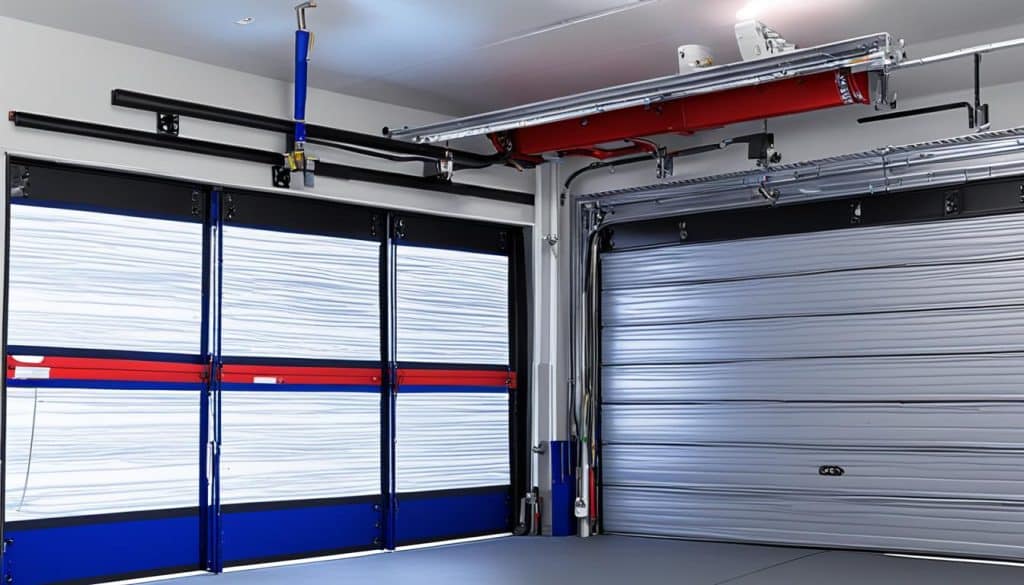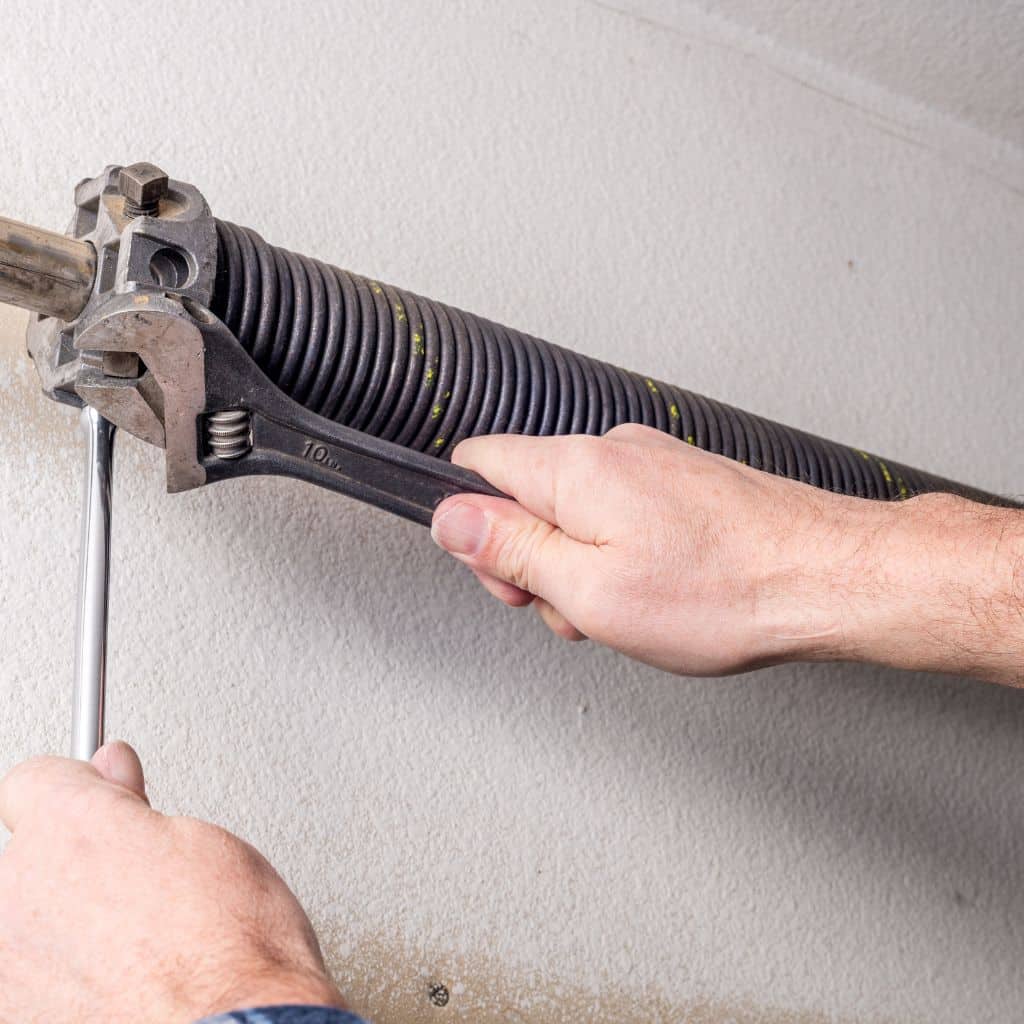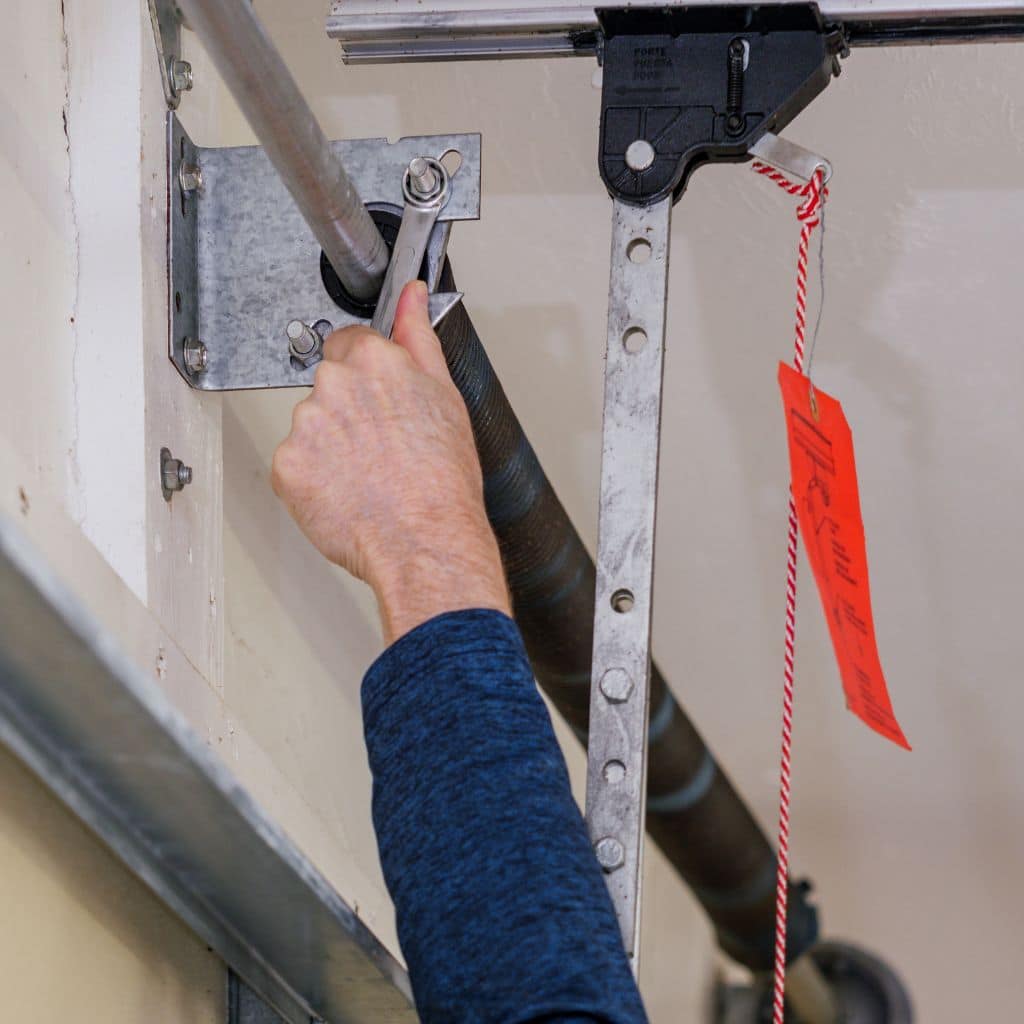Orlando Garage Door Services
1(407) 788-1229
Volusia Garage Door Services
1(386) 236-9100
1(407) 788-1229
1(386) 236-9100
Checking your garage door’s condition is key for safety and function. Small problems like debris or a misaligned sensor can be fixed easily. But, if your garage door shows serious issues, it’s best to call a pro for help. This keeps you safe and stops more damage.
Problems with the door’s movement, like jerking, can have many causes. These might include damaged tracks or springs that need replacing. While it might seem easy to try to fix it yourself, the wrong move can lead to big problems or even harm. A skilled technician can diagnose and fix these issues correctly.
Also, if your garage door doesn’t work with the remote or manual, you need a pro. Even simple fixes like new batteries or remote setup might not work. If not, the problem could be deeper, like in the opener. In these cases, a garage door repair expert can solve the problem quickly and right.

If your garage door starts acting up, catching the problem early can save you a lot of trouble and money. Here are some common issues to watch out for.
Garage door sensors are key to your safety and the door’s smooth operation. If the door reverses before it closes or won’t close at all, the sensors might be off. Try cleaning the lenses and checking if they’re aligned right to fix sensor problems.
Springs and cables are always under tension and can be dangerous if they snap. A loud banging sound or a door that won’t lift might mean a broken spring. If the door hangs unevenly, it could be due to broken cables or pulleys. It’s wise to get professional help for these parts.
The tracks help the rollers move smoothly. A little dirt in the tracks can be cleaned by you. But if you see damage or misalignment, like bent tracks or rollers not working right, it’s a bigger problem. Make sure the rollers fit well in the tracks and they’re straight. For serious track issues, it’s best to call a garage door repair expert.
When to Perform DIY Garage Door Maintenance
Regular DIY care for your garage door keeps it running smoothly and prevents bigger problems. Keep moving parts lubricated and remove debris to keep your door in good shape.
Use the right lubricant on your garage door’s moving parts. This includes hinges, rollers, and tracks. A silicone-based or lithium grease lubricant every six months keeps these parts moving well and prevents damage.
Regular maintenance means checking for and removing debris that can stop your garage door from working right. Look for leaves, stones, or twigs in the tracks that could block the door.

Thinking about fixing your garage door yourself? It’s key to think about the money you might save versus the risks. You could end up causing more harm or putting your safety at risk. Here’s what you need to know before you start.
If you’re new to garage door repair, you might accidentally make things worse. For instance, messing with the spring tension can mess up the door’s balance. This could hurt the rollers and bolts and make repairs more expensive.
It might also mean you’ll need to do a lot more work. A pro could have fixed it without these extra problems.
Garage doors are heavy and have a lot of tension, thanks to the torsion springs. If you’re not careful, you could get seriously hurt. It’s critical to make sure everything is secure and safe.
Make sure the screw connections are tight and the wood is solid. This keeps you and your garage safe. Also, check that the rollers and bolts are in the right spot and working right. This helps avoid accidents and the high costs that come with them.

When considering garage door repairs, a professional assessment is crucial for accurately evaluating door hardware and ensuring your garage is energy-efficient with proper insulation.
Experts are great at examining every part of your garage door’s hardware. They look for wear and tear, dents, and damage to panels. They also check if your garage door looks good without hiding problems.
By checking these parts, experts can tell if your garage door is in good shape. They can suggest repairs to avoid more damage and accidents.
Insulation is a big part of garage door maintenance. It keeps your garage at the right temperature, saves energy, and reduces noise. Experts will:
With a professional’s help, your garage will be well-insulated. This keeps your garage door looking good and saves energy.
Finding the right professional for your garage door repair is important. You need someone with the right skills and knowledge. This ensures your garage door gets the best care, whether it’s an electric opener or has complex designs.
Certifications and Experience:
Customer Reviews and Ratings:
Estimation Breakdown:
Transparency and Comparisons:
When dealing with garage door problems, knowing if you need a pro is key. It’s about safety and keeping your door in good shape.
If your garage door keeps having trouble opening or closing, it might need fixing or replacing. These issues usually need an expert’s look.
Big dents or broken panels and frequent problems after repairs mean it’s time for a new door.
Getting your garage door serviced once a year is a good idea. It keeps it working well and prevents bigger problems.
Broken springs, opener problems, and cables off track are common reasons to call a pro. These issues are complex and can be dangerous, so it’s best to get help.
A noisy or erratic garage door often means there’s a bigger problem. It might need a pro to fix it right and safely.
You can do some basic upkeep yourself. Try lubricating parts, checking bolts, and balancing the door. But if these don’t work, it’s time to call the pros.
We are a family-owned business that takes pride in providing exceptional garage door service to the residents of Central Florida
A satisfied customer every time. We won’t rest until the job is done and you are 100% happy.